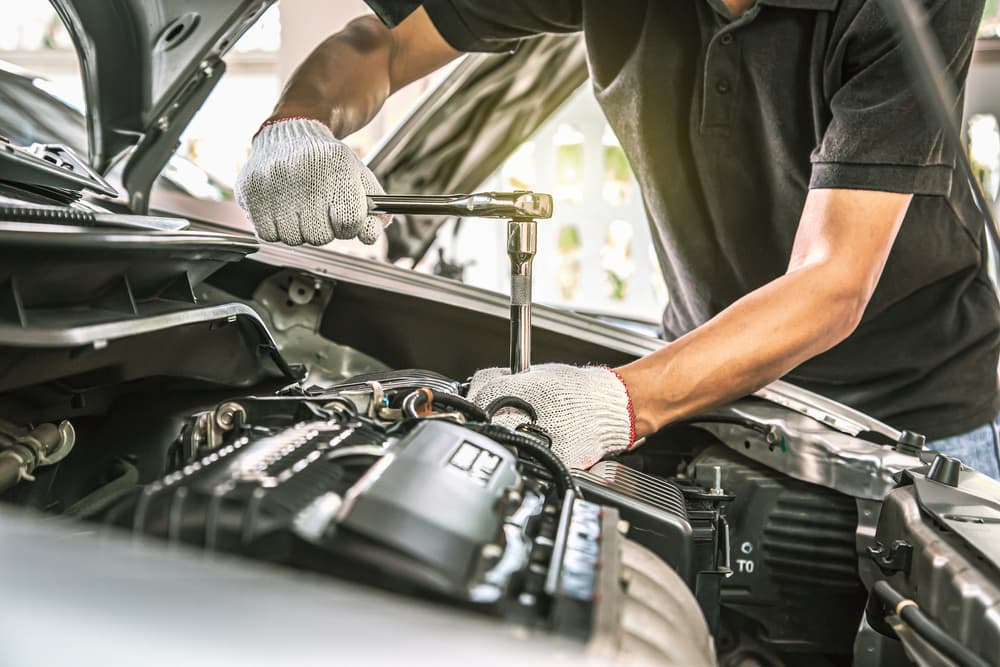If you’ve purchased a new or used vehicle in California and are struggling with persistent mechanical issues that just don’t seem to get resolved, you may be wondering whether you are entitled to a remedy under California’s Lemon Law. This law exists to protect consumers from vehicles that repeatedly fail to meet standards of quality, safety, and usability. Los Angeles Chevrolet lemon law attorneys are here to help you navigate this process and determine if your car qualifies as a lemon.
California’s Lemon Law, formally known as the Song-Beverly Consumer Warranty Act, is designed to provide protection for consumers who purchase or lease cars that have substantial defects. If your car is under warranty and has been repeatedly repaired for the same or similar issues, you may have grounds for a lemon law claim. In this article, we’ll explore the key factors that determine whether your car qualifies under the law and what steps you can take if you think your vehicle might be a lemon.
What Is California’s Lemon Law?
California’s Lemon Law is a consumer protection law that covers the repair or replacement of defective vehicles. If you purchase a new or used car that is under warranty, and that car has a significant defect that cannot be fixed within a reasonable number of repair attempts, you may be entitled to a buyback or replacement vehicle. The law is designed to ensure that consumers are not stuck with faulty vehicles that impair their safety, use, or value.
The Lemon Law applies to new vehicles, including cars, trucks, motorcycles, and SUVs. It also applies to used vehicles if they are still under the manufacturer’s warranty at the time of the purchase. Defects covered under the Lemon Law typically affect the vehicle’s safety, use, or value, such as problems with the engine, transmission, brakes, electrical system, or airbags. Cosmetic issues, like paint chips or small scratches, do not usually qualify.
If your car has been in the shop multiple times for the same issue or has been out of service for an extended period, you may have a valid claim under California’s Lemon Law. Los Angeles Chevrolet lemon law attorneys are here to help determine whether your car fits the criteria and guide you through the process.
How to Determine If Your Car Qualifies Under California Lemon Laws
To qualify under the California Lemon Law, your vehicle must meet specific criteria. Below are the most important factors to consider when determining whether your car qualifies:
1. Warranty Coverage
The first key factor in determining whether your car qualifies under California’s Lemon Law is whether the car is still covered by a manufacturer’s warranty. If your car is no longer covered by a warranty, it may not be eligible for lemon law protection. However, some used vehicles may still be under a manufacturer’s warranty, in which case you may still qualify.
- New Cars: If you bought a new car, it is almost certainly under warranty. These warranties typically last 3 years or 36,000 miles, but this can vary by manufacturer. The warranty should cover most defects that occur within that time period, including repairs to major systems such as the engine, transmission, and safety features.
- Used Cars: If you bought a used car, it must be covered by the manufacturer’s warranty at the time of purchase. Certified pre-owned cars often come with a manufacturer’s warranty, which may provide lemon law protection. Check your warranty documentation to see if your used car qualifies.
If your vehicle is out of warranty, it may still be eligible for other forms of legal action, but it will not be covered by the Lemon Law.
2. Repeated Repair Attempts for the Same Issue
One of the most important criteria under California’s Lemon Law is whether the car has been repaired multiple times for the same issue. The manufacturer or dealership must be given a reasonable number of chances to fix the problem before the car is considered a lemon.
California law typically requires that the vehicle be repaired at least two times for the same defect without success. However, there are certain situations where a single repair attempt may be sufficient. For example, if the defect is severe (like an issue with the braking or steering system), even one repair attempt may be enough.
Additionally, if the vehicle has been in the shop for four or more attempts for different problems, this could also be grounds for a lemon law claim.
Another important factor is if the car has been out of service for repairs for a total of 30 days or more due to defects. If your car has been in the shop for an extended period, it may be eligible for lemon law protection.
3. Serious Defects Affecting Safety, Usability, or Value
To qualify under the Lemon Law, the defects must be substantial enough to affect the vehicle’s safety, usability, or overall value. Minor cosmetic defects, such as scratches or small dents, are generally not covered. However, if the defect impairs the car’s ability to function properly or poses a safety risk, it is likely to qualify.
Some common defects that may qualify under the Lemon Law include:
- Engine problems (e.g., stalling, overheating, or loss of power)
- Transmission issues (e.g., slipping, failure to shift, or inability to engage gears)
- Brake system defects (e.g., brake failure, reduced braking power, or issues with anti-lock braking systems)
- Electrical problems (e.g., issues with the battery, lights, or electrical wiring)
- Safety system defects (e.g., airbags failing to deploy or seatbelt malfunctions)
If the defect makes your car unsafe to drive or diminishes its value significantly, it is more likely that your vehicle will qualify under California’s Lemon Law.
4. Reasonable Opportunity for Repair
The manufacturer or dealership must be given a reasonable opportunity to fix the defects. This typically means that the vehicle must have been brought in for repairs at least two or three times for the same issue before pursuing a Lemon Law claim.
In the case of more serious safety issues (such as defects affecting the brakes or airbags), one repair attempt might be sufficient. If the car has been out of service for 30 or more days, you might also have a claim under the law.
What Should You Do If You Think Your Car Is a Lemon?
If you believe your car qualifies for a Lemon Law claim, the first step is to document the defects and the repairs made. Keep all receipts, invoices, and service records that show the repairs, including dates and descriptions of the defects.
Next, it’s important to contact a lawyer who specializes in lemon law cases. Los Angeles Chevrolet lemon law attorneys are here to help guide you through the process and help you understand your legal options. An attorney will help you determine whether your car qualifies and can assist in filing a claim with the manufacturer.
Once your attorney determines that you have a valid claim, they may send a demand letter to the manufacturer requesting either a buyback or a replacement vehicle. In many cases, the manufacturer will offer a settlement without the need for a lengthy court battle. If the manufacturer does not offer a satisfactory solution, your attorney can help you take the case to court.
How to Choose the Right Lemon Law Attorney in Los Angeles
If you’re facing issues with your vehicle and believe you may have a lemon law case, it’s crucial to choose the right lemon law attorney in Los Angeles. Here are some tips for selecting an attorney:
- Experience: Look for an attorney who has handled lemon law cases before and is familiar with the specific details of California’s Lemon Law. They should understand how the law applies to various types of vehicles and defects.
- No Upfront Fees: Many lemon law attorneys work on a contingency basis, meaning they only get paid if you win your case. This can make it easier for you to pursue a claim without worrying about upfront costs.
- Client Reviews: Look for reviews or testimonials from past clients to get an idea of the attorney’s success rate and customer service.
- Communication: Choose an attorney who communicates clearly and promptly, as lemon law cases can involve complex legal issues that require close attention.
Conclusion
If you’re experiencing recurring issues with your car that affect its safety, value, or usability, you may be entitled to a refund or replacement under California’s Lemon Law. Determining whether your car qualifies requires evaluating several key factors, including the severity of the defect, the number of repair attempts, and whether the vehicle is still under warranty.
If you believe your car may be a lemon, Los Angeles Chevrolet lemon law attorneys are here to help you understand your rights and guide you through the legal process. Choose the right lemon law attorney in Los Angeles to help you navigate this process, ensuring that you are treated fairly and receive the compensation or replacement vehicle you deserve. Don’t let persistent defects ruin your driving experience—take the necessary steps to protect your consumer rights today.



































